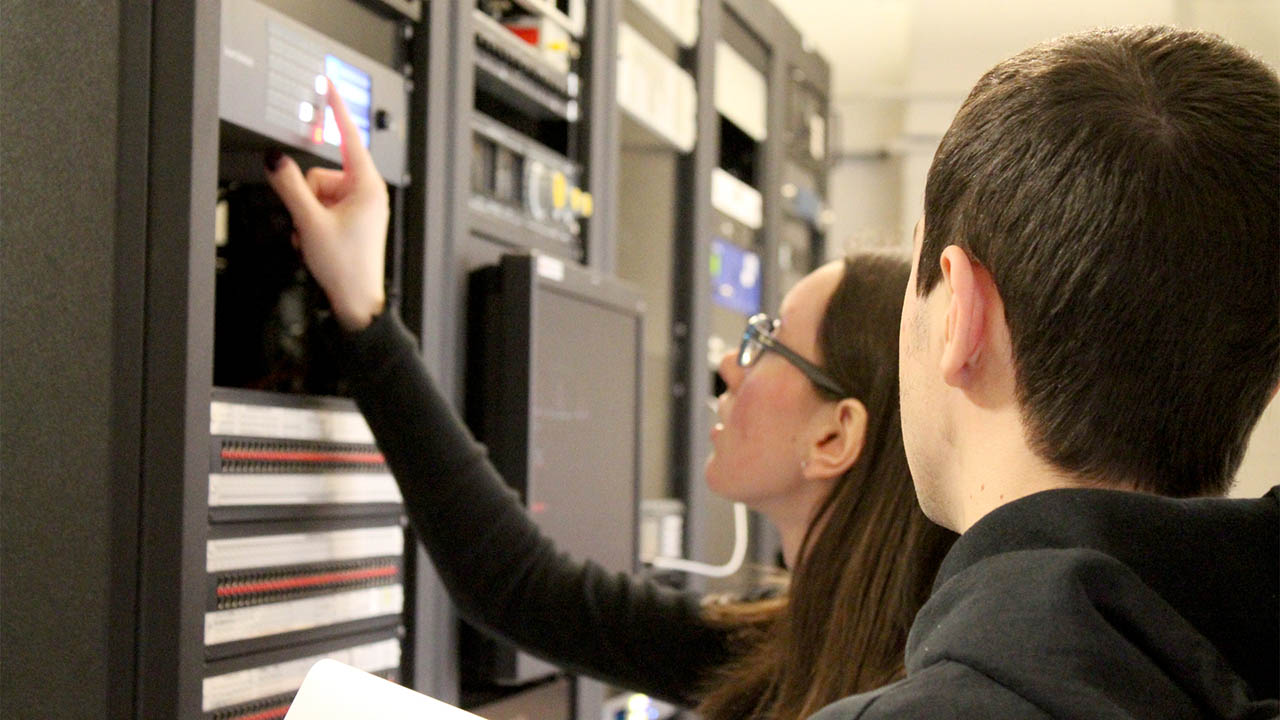The benefits of working for Fanshawe as a student
 CREDIT: EMMA BUTLER
CREDIT: EMMA BUTLERKole Dupuis is finishing his last semester in TV and film broadcast production and has found himself working for the college.
Working for Fanshawe College as a student has many benefits that can help you while you attend school and after you graduate. There are two work bursary programs at Fanshawe, the work-study program, open to domestic students receiving funding through student loans and who demonstrate financial need. The second is ISWEP (International Student Works Experience Program), funded by the college for international students to work on campus.
Darlene O’Neill has worked at Fanshawe for 11 years and is currently the Director of Employment and Student Entrepreneurial Services. O’Neill has experience with working as a career counsellor and shared how her job helps the college and students connect.
“My role here oversees all things employment related for students, graduates and community clients. Career services supports students and with part time employment and graduate employment. We host numerous job ready toolbox workshops and events and we are the students link to employers,” said O’Neill. “We also help members of our community who are unemployed or underemployed to find meaningful careers through Community Employment Services.”
Kole Dupuis is finishing his last semester in TV and film broadcast production and has found himself working for the college. Dupuis is a part of the Tech team that helps out both first-year and second-year students within the broadcast programs.
“My job consists of working through technical issues in the college while supporting all of the broadcasting programs in their productions. I also am in charge of making sure all of the live productions that field placement and second year broadcast television students produce from a technical standpoint for things such as the Fanshawe Falcons games as well as Share the Land with the [music industry arts] students,” said Dupuis.
Working at Fanshawe provides a new perspective that one may not normally have as a student. You can meet different people throughout the college community and gain a broader understanding of how the college works to support the students, according to O’Neill.
Domestic students who are approved for a work study will not have their OSAP jeopardized by earning a salary in an on-campus job, meanwhile, international students are able to work more than 20 hours per week if they work on a campus. The positions that are posted have been approved by financial aid as bursary supported positions and are posted on the Career Services job site.
While this program allows students to work for the college through a bursary, Dupuis started his job with the school without using the program. He chose a job that would help him within his career path and allow him to obtain skills to use in the future.
“I wanted to work for the college because I feel that it can build new relationships that you can include as references in the future as well as a job working in the industry you're going into while still going through the schooling would look good on a resume,” said Dupuis. “I would tell future students that if you find a job within the college that pertains to your program then you should take it. You can build a big reference base for your resume as well as gain new experience so that when you get into the industry you can have that experience on your belt ready to go and help where needed.”

















